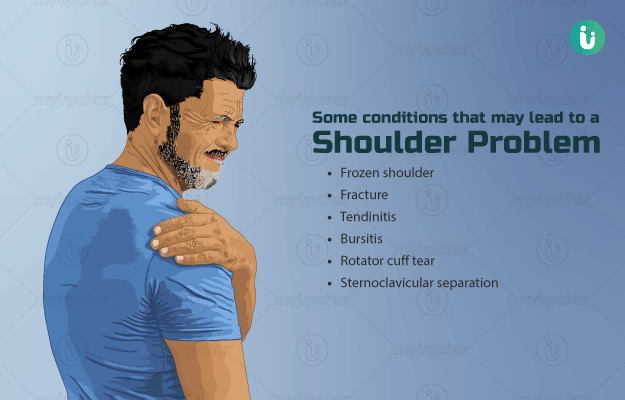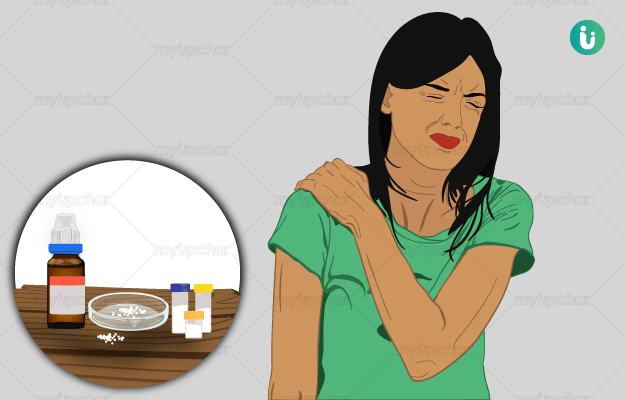Summary
Shoulder pain may arise due to damage to any of the three bones that form the shoulder, the tendons, or the cartilage. The most common causes of shoulder pain are rotator cuff disorders, shoulder fracture, shoulder dislocation, and frozen shoulder. The risk factors associated with shoulder pain are ageing, shoulder injury due to strain, risk factors of heart diseases such as high cholesterol, high blood pressure and diabetes, smoking, and use of certain medications. Correct posture, along with stretching and strengthening exercises help to prevent most shoulder problems. Treatment of shoulder pain depends on the underlying cause and the severity of the condition. Most problems of the shoulder are treated by a combination of medications, rest, and exercises; while others like fracture may require surgery. Timely diagnosis and prompt treatment of the condition is the key to a good prognosis. Shoulder pain responds well to standard treatment modalities and most people experience relief in a few weeks or months. Complications of shoulder pain are rare and generally result from a physical injury. However, surgery is highly successful even in the most complicated cases. In rare cases, shoulder pain may indicate another serious condition such as a heart attack, which requires an urgent medical attention.

 Doctors for Shoulder Pain
Doctors for Shoulder Pain  OTC Medicines for Shoulder Pain
OTC Medicines for Shoulder Pain
 Shoulder Pain articles
Shoulder Pain articles

 Ayurvedic Treatment of Shoulder Pain
Ayurvedic Treatment of Shoulder Pain
 Exercise for Shoulder Pain
Exercise for Shoulder Pain
 Home Remedies for Shoulder Pain
Home Remedies for Shoulder Pain
 Homeopathic Treatment of Shoulder Pain
Homeopathic Treatment of Shoulder Pain

































 Editorial Team
Editorial Team



 Dr. Rachita Narsaria
Dr. Rachita Narsaria

 Dr. Laxmidutta Shukla
Dr. Laxmidutta Shukla











